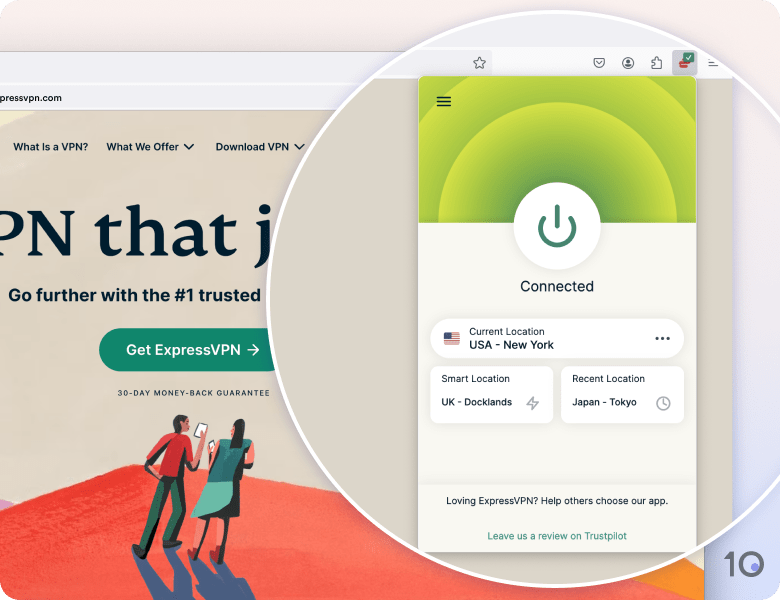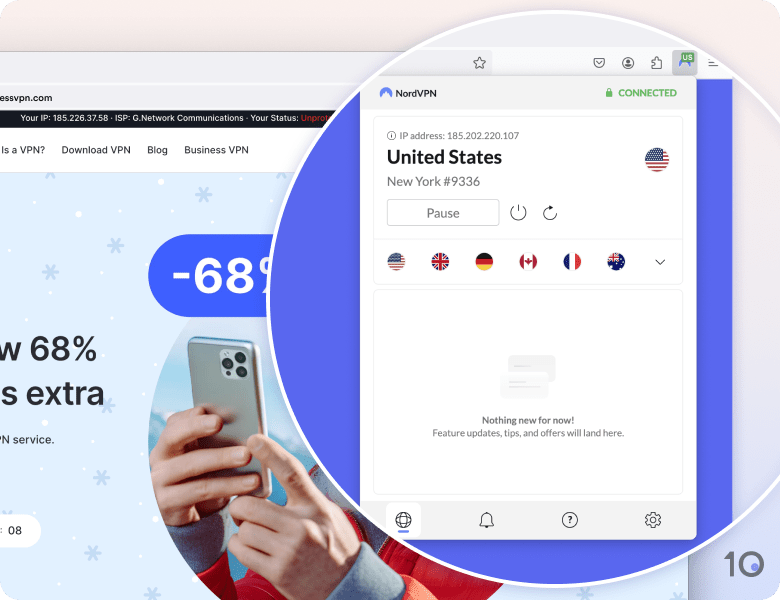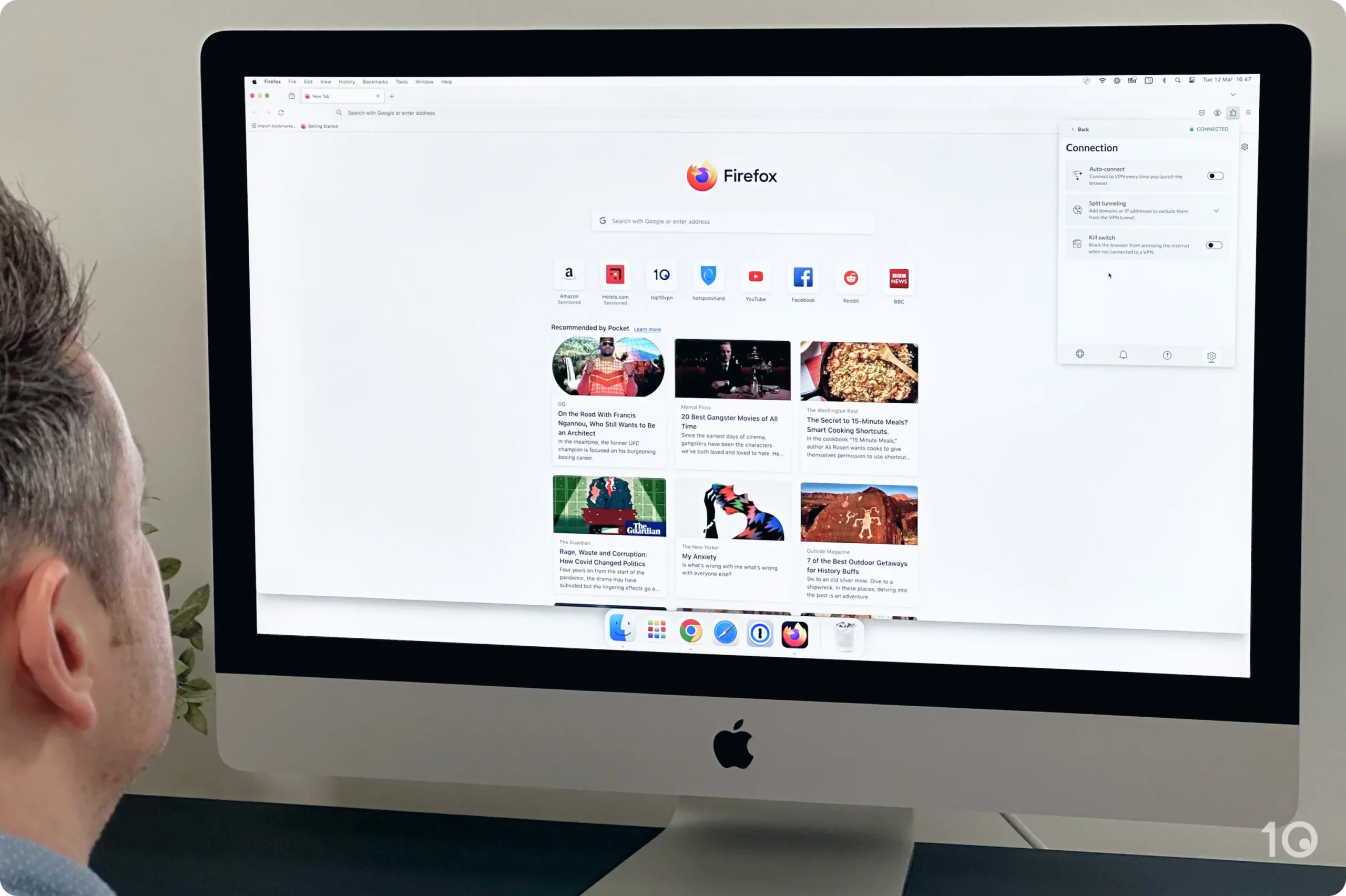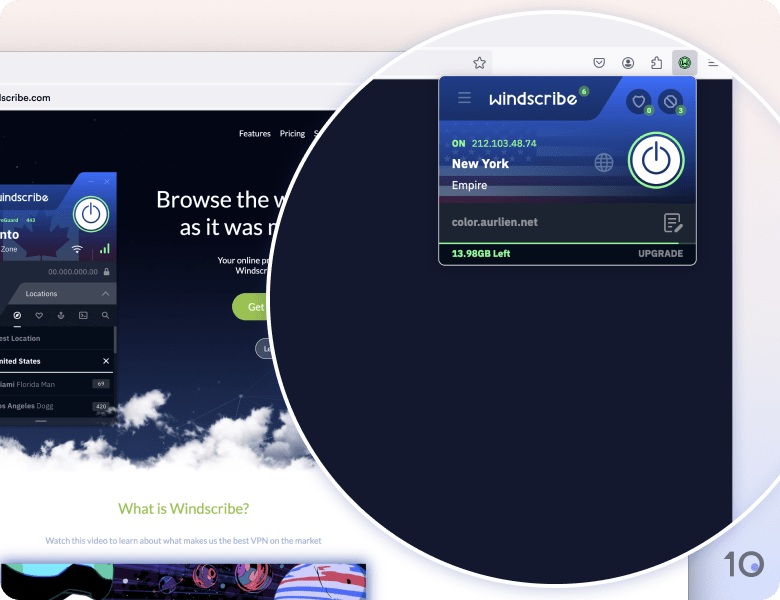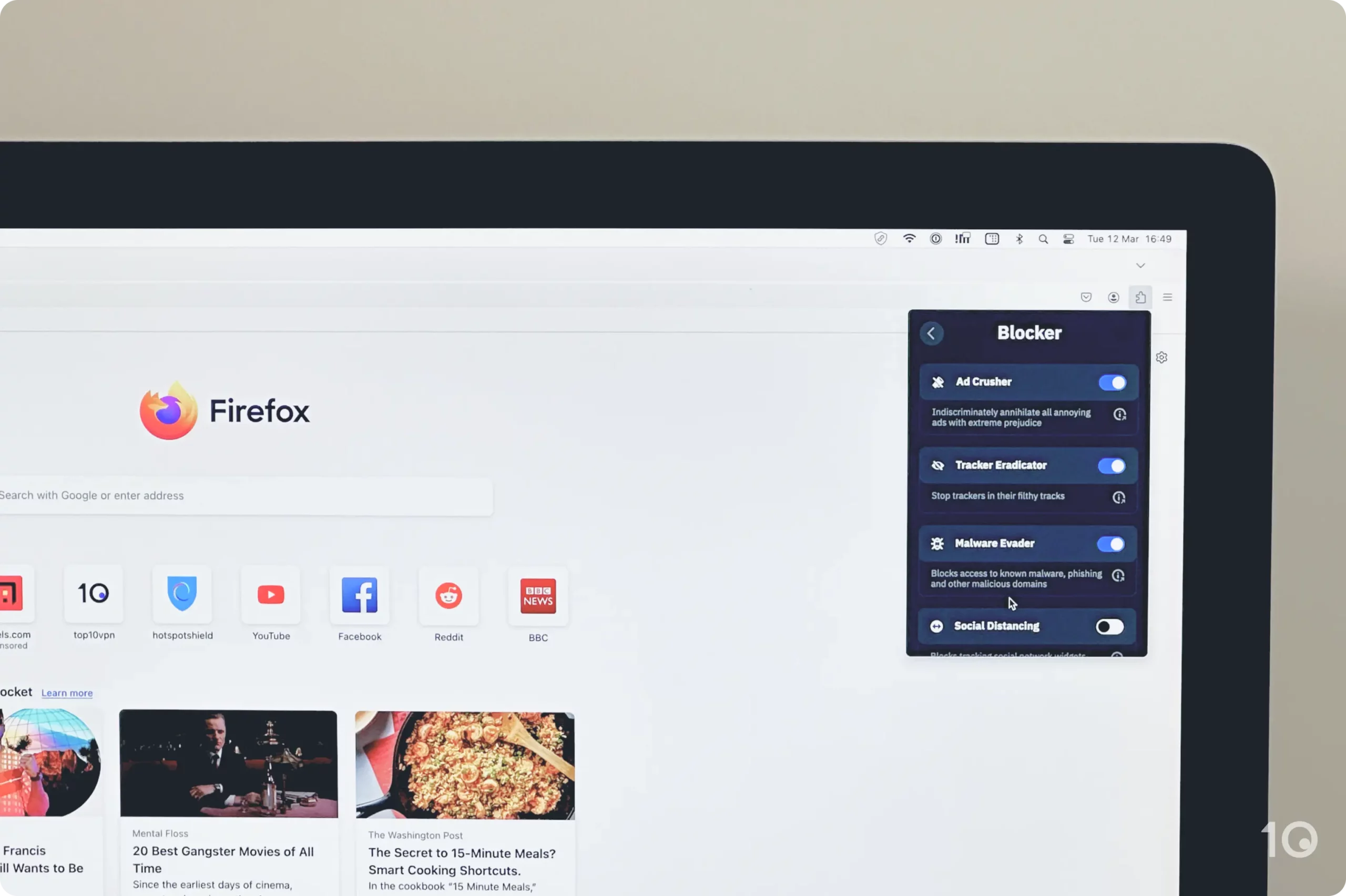VPNs with a data cap receive a reduction to their overall rating.
The process of rating VPN browser extensions is different to the one we use for full VPN applications, as there are typically restrictions and subtle differences that users aren’t aware of.
That’s why we start from scratch, and test all Firefox VPN extensions independently of how the full VPN application performs.
How well each VPN answers these questions make up its final rating. Below, you can see how much of the overall rating these key testing areas make up.
1. Extension Encryption (40% of Overall Rating)
VPN encryption is what sets a browser extension apart from a low-level proxy, or spoofer. It’s what makes it a VPN, essentially.
While proxies can unblock websites by changing your IP like a VPN does, a VPN is different (and superior) because it works at a device-level and encrypts all the data flowing through your device. Proxies leave your data open to prying eyes.
We look for encryption protocols like OpenVPN and WireGuard and ciphers like AES-256. Those that offer less robust encryption like SSTP have a lower rating, but are still preferable over a proxy.
On top of that, we inspect the VPNs privacy policy for any differences between its full app and browser extension. We like to see them as aligned as possible, ideally identical, and for the privacy policy to be as close to zero-logs as possible.
You can read more about the differences between VPNs and proxies in our in-depth guide.
2. Firefox Streaming (20% of Overall Rating)
While privacy is our most important value, we’re aware that browser extensions are hugely popular as most people want to access geo-restricted streaming services.
That’s why we’ve attached 20% of our overall rating to a Firefox extension’s ability to access streaming services otherwise restricted.
We test each VPN extension on Netflix to see whether it can unblock the many different libraries across the globe. The more it can access, and the speed and ease with which it does it, the higher we rate the VPN extension.
This is particularly important for extensions, which often perform differently to the full VPN app.
3. Extension Server Locations (20% of Overall Rating)
The more locations available to establish secure connections the better.
While it isn’t essential to have hundreds of available countries if you simply want to spoof your IP at home, we reserve praise for VPN extensions that are as close to its full app as possible.
It also allows the possibility to connect to more streaming libraries from across the globe.
4. Additional Firefox Features (20% of Overall Rating)
Firefox is known to cause VPNs to leak WebRTC. This is a security risk whenever you use voice or video chat in your browser.
Therefore, we want to see Firefox extensions with WebRTC leak protection.
Beyond that, features like an ad and tracker blocker provide additional value. Best of all is a HTML geo-blocker to prevent real location reveals.

